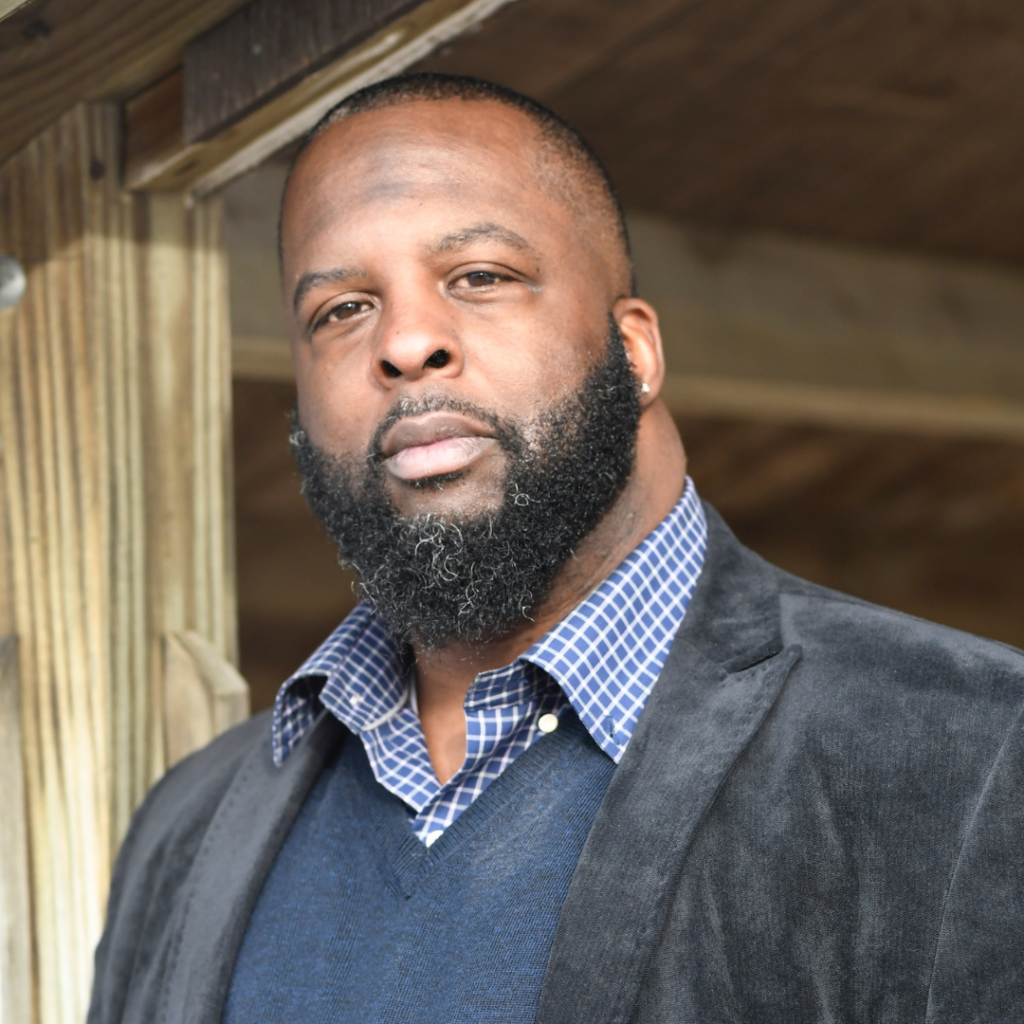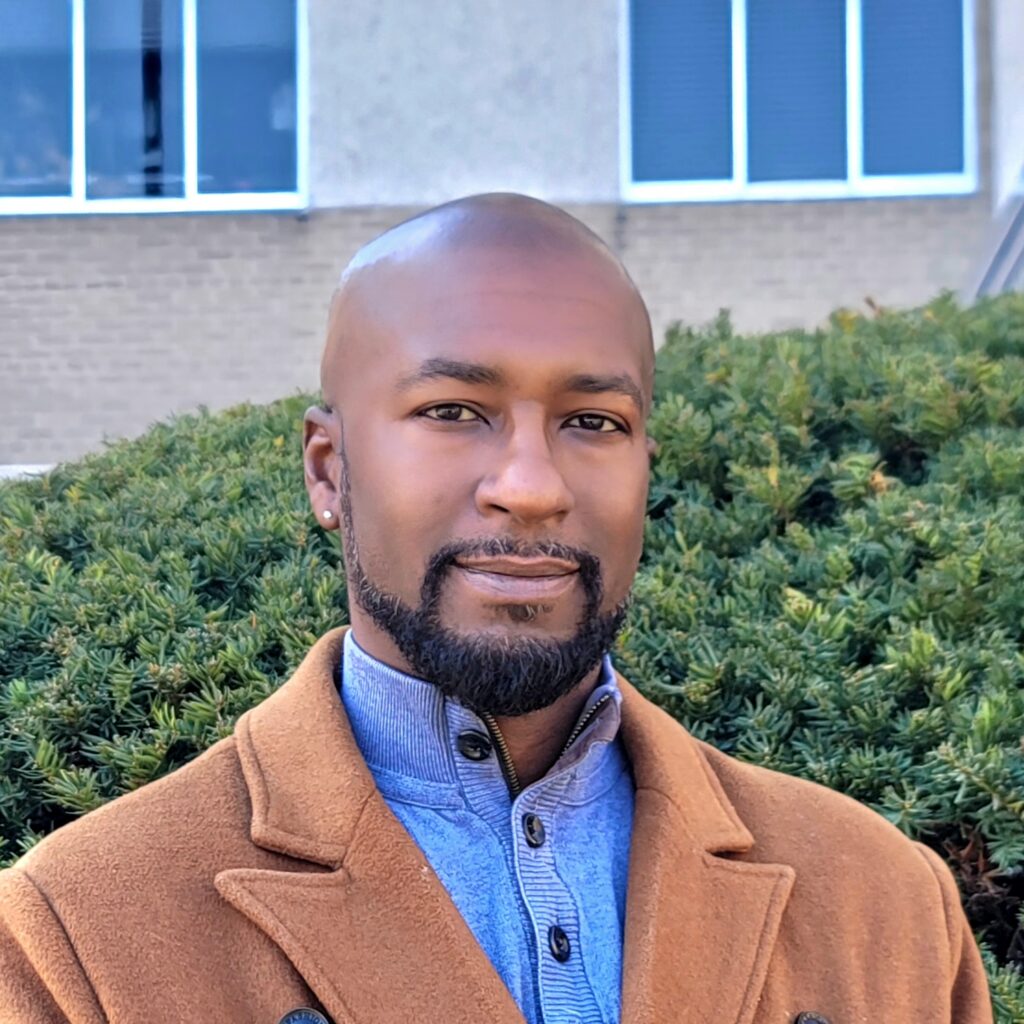This year, approximately 8,000 people will be released from Wisconsin state prisons. According to the Wisconsin Department of Corrections, more than half of those released will be rearrested within three years.
Aaron Hicks and Frank Davis, Reentry Coordinators at the Nehemiah Center for Urban Leadership Development in Madison, who were formerly incarcerated, use their experience to help others successfully return and stay in their community. “It’s a rarity that you see or hear from individuals who have been impacted, who have successfully entered back into the community and went on to be successful in their own life and stayed out of prison,” said Hicks. Along with the Division of Extension, researchers, students, and educators at UW–Madison, Hicks and Davis are working to design a curriculum and peer-support program to change the reentry experience.
Danielle Hairston-Green, Human Development & Relationships Institute Director, said this is the Wisconsin Idea in action. It demonstrates the power of connecting the resources of the university with the needs of the community. “The experience that Aaron and Frank bring to the table is invaluable to making a difference for the justice-involved families that we work with. Likewise, having the research-expertise of Professor Koenigs will allow us to identify and understand what is working,” said Hairston-Green.


Building Up
This spring, they are launching Build Up, a seven-week pilot program, allowing newly released individuals to engage with and get support from peers who have been through reentry and came out on the other side. They will discuss the challenges and ways to shift individual mindsets while providing tools and resources to help participants make informed decisions.
Build Up is different from other programs they’ve seen. “Most people only understand reentry from an academic lens. And so if you have not had that experience, it’s super hard to understand the mindset of individuals who have been impacted,” Hicks explained. Build Up is designed for individuals who have been impacted by people who have been impacted.
The stressors of reentry
When a person returns to their community after incarceration, they need housing, employment, and transportation. They’ll have relationships to restore and mental, behavioral, and physical health care needs to address, all while complying with the conditions of their parole and supervision. They’ll have to relearn how to do everyday things, like using a phone or paying a bus fare, because the world often looks and functions differently.
On top of that, they are returning to a hostile environment. Davis said that it can feel hopeless, and that hopelessness often leads to recidivism, “Every step of the way, people remind us of what we did. Even if we change, people constantly want to use what we did in the past and we know it. We’re not walking out a person that is coming out to do something better, we’re coming out as a felon that nobody trusts and everybody is ready to judge,” said Davis. “But to be able to give people the confidence to know that whatever they face, they’ve got the tools to actually deal with it. Ultimately, that is what the Build Up program is about.”
Combining real-life experience with research
Mike Koenigs, professor of psychiatry at UW–Madison, studies ways to improve the mental health care and well-being of individuals impacted by the criminal legal system. Prior to collaborating on the Build Up program, Koenigs and his students interviewed formerly incarcerated men and women to better understand what supports and services would be helpful as they reenter their communities. They found that the most important factor was not what, but who provided the services and support. “It’s critical that the provider is credible, trustworthy, and has the ability to understand and connect with the person seeking support,” said Koenigs. “The study revealed a strong preference for peers, individuals with lived experience of incarceration, to fulfill this role of service/support provider.”
Koenigs, who had already begun to talk about possibilities for supporting reentry programs with Hicks and Davis, reached out to Extension’s Justice-Involved Families Program Manager, Ronda Davis. Because of her team’s work educating individuals housed in correctional facilities throughout the state, she offered experience developing curricula, implementing programs, and developing partnerships with those involved in the justice system.
Once the team was established, Koenigs said they started to work out what it would look like in terms of a research project. How would they get funding? How would they show that it works? How would they be able to test it and make improvements? Last year, through a Wisconsin Idea Collaboration Grant, the group got to work. Koenigs said, “This degree of collaboration between community and the university — starting with an idea from community members with lived experience, bringing in evidence-based practices, building a curriculum, testing it in a rigorous way — that’s the part that I think is unique.”
Putting the Wisconsin Idea into action
Mickela Heilicher, a psychology graduate student working with Koenigs, has worked with Hicks and Davis to make sure the curriculum incorporates both the real-life experiences of those impacted and also psychological best practices. In addition, Heilicher has played an important part in shaping the structure of the research components that will determine if the program is effective and what improvements need to be made. Heilicher has watched Hicks and Davis interact with participants and said that they bring something to the program that someone without their experiences could not. “The connection that this individual felt to Frank. They felt seen, they felt heard, they felt respected. Just seeing the way that people relaxed and felt comfortable. That was incredible to see.” Heilicher attributes that connection to their shared experience and the power of peer support.
Hairston-Green is excited about the collaboration and how her educators will play a role in the future. “Once we have a strong curriculum, using the successful partnerships we already have, our county-based educators who are involved in work involving justice-impacted families could introduce this new peer-support program to communities throughout Wisconsin. Eventually, we will pilot it with other extensions across the U.S.” Results from the pilots will be available in the late fall when the group plans to take the findings and apply for additional funding to grow the program.
Changing mindsets
The cost of keeping someone in jail can vary depending on factors such as the facility, level of security, and specific services provided. In Wisconsin, the average amount is around $30,000 per inmate per year. For the Build Up team, they hope to show that focusing on reentry is better for everyone. “We know what it costs taxpayers to house people in correctional facilities. We want to show what it costs to keep them out,” said Davis.
Koenigs hopes that this collaboration will demonstrate the power of community-university partnerships in finding effective ways to have meaningful impact. Koenigs said, “One thing we would love to have come out of this is a conversation about how do we recognize these capabilities in the community? How do we elevate them? How do we sustain them? How do we grow them? How do we create the structures so that the people who have had these experiences aren’t in the position of always having to go to a particular kind of clinic or institution, but it’s growing out of the community for the community.”
Davis would like to change the collective mindset. “When you’re inside, everyone tells you that there’s no use trying. You’ll be back in. You look around and see all the people that were released and then came back and instead of focusing on how you’ll succeed, you start to wonder what’s that thing that will land you back inside.” He hopes that having more success stories will help others see that re-entering their community successfully is possible. When currently incarcerated individuals start to believe there’s another way, things will really change. The first step is focusing on Build Up and the individuals participating in the current pilot because, for him, they are the beginning of a movement.
This project was funded through the Wisconsin Idea Collaboration (WIC) Grant program, sponsored by the Division of Extension and the Vice Chancellor for Research. WIC Grants are designed to catalyze collaboration between the Division of Extension and other UW–Madison schools, colleges, institutes, and centers to extend the knowledge and resources of the University of Wisconsin to people where they live and work.



